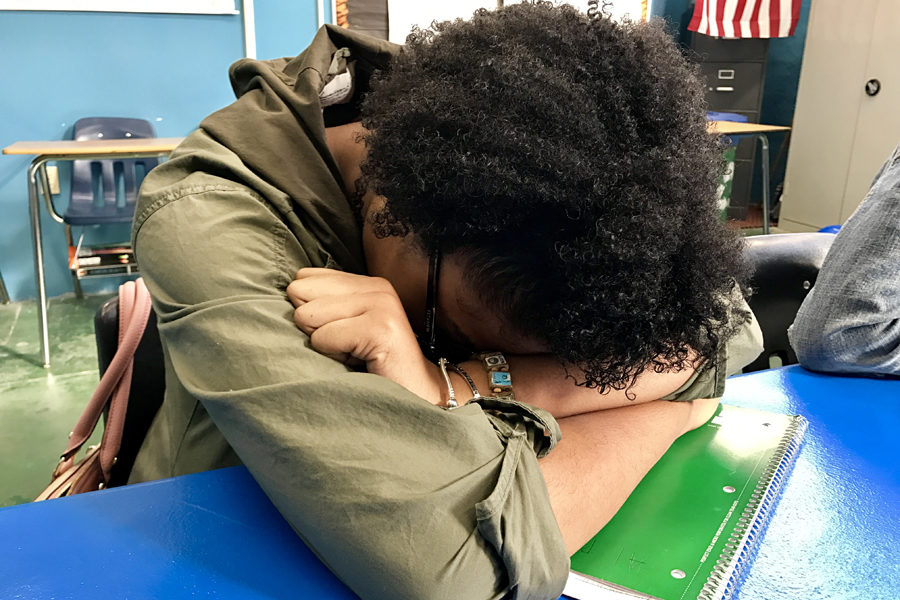Sleep Competes With Teens’ Many Activities
Senior Taylor Lovelace catches a few Z’s on her desk after a long night of work.
April 12, 2017
Some students can’t wait till the end of the day when it’s time to crawl back in bed and retire for the night. However, this makes remaining asleep through the night hard.
Sleeping is vital and especially important for teens because of the stage of development they’re in. Teens are supposed to sleep each night for about 8 to 10 hours, but some have trouble getting even five or six. They have trouble with sleep for multiple reasons: a busy schedule, active social lives, and even stress and worry.
“During sleep, our bodies and brains are in a recharging stage, and we need that to be alert the next day,” psychology teacher Katherine Cortinez said. “Young people are so active these days. They want to do everything so fast and so quickly that they don’t think sleep is so important.”
With so much on their to-do lists, sleep can sometimes be hard to get or limited. Some believe that taking a sleep aid can help bring sleep faster.
“I usually get about 8 hours of sleep a night,” senior Caitlyn Robbins said. “If I want to go to sleep earlier, I just take a Benadryl.”
Taking sleep aids may be a fast solution to sleep that’s not coming, but it can also be risky. Sleep medication such as Melatonin, Nyquil, Unisom, and others have potential for both physical and psychological dependence. Benadryl is an antihistamine that is used for treating allergies and not a sleep aid, and can be more risky because it usually has more side effects. Sleep aids in general hold potential risk of addiction that increases when the drugs are used improperly.
“It’s better for teens to not take sleep medicine,” Cortinez said. “There are natural things students can do, like drinking a glass of milk before bed, because it has calcium in it, which helps you sleep.”
Teens are faced with a lot of things that compete for their time. Once home from school, some students have a mountain of homework, jobs, and household chores that take up much of their time. Other distractions, such as excessive use of electronics, can limit sleep.
“Teens have a habit of staying on their electronics or doing a lot of activities before going to sleep. I suggest teens stay off their electronics about 30 minutes before going to sleep, and don’t exercise before going to sleep. If you let your mind relax, it will be easier to sleep through the night,” Cortinez said.
Getting too much sleep or too little sleep can cause problems in everyday lives. Studies show that when teens develop a schedule to go to bed at about the same time every night, and wake up at about the same time every morning, even on the weekends, their levels of alertness throughout the day will be much higher. Keeping phones and electronics charging in another room at night can also limit temptation to use them. Also by not being overloaded with work it can be easier to relax and sleep at night. With these simple solutions sleep can be made easy. So get ready, set, and sleep!



